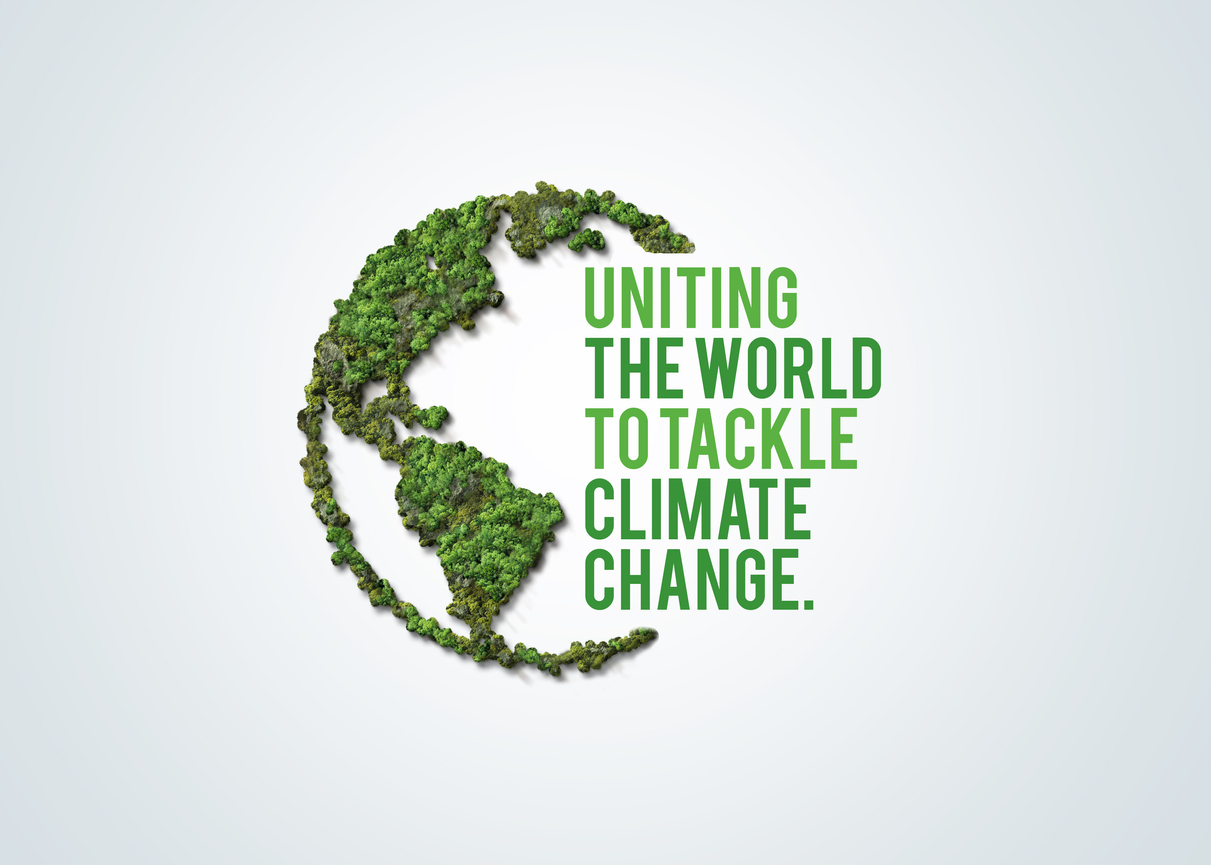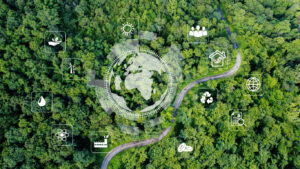Why words are a secret weapon in the fight against climate change
And they’re only going to grow more important.

change. UN climate change conference 3d green concept.
It’s easy to take words for granted. We speak and write them all day long, often carelessly, heedless of their power.
But in the hands of a skilled communicator, words can be profound tools of persuasion for some of the most important topics in the world.
“Every comms professional needs to be very obsessed with the words that they use,” Kaitlyn Barclay, CEO and co-founder at Scout Lab, a creative agency that prides itself in “building brands that advance humanity forward.”
For Barclay, words are key to getting people of all political persuasions to pay attention and take action on climate change. Sociolinguistics, the study of language in relation to region, class and other societal factors, she says, are like a “hidden tool” for advancing the conversation about the urgent threat of climate change.
When working with clients to craft these messages, Barclay points to three key pillars for successful environmental communications.
Trusted messengers
Before choosing specific messages or words that will resonate, it’s critical to understand who will receive the messages. A Republican and a Democrat are likely to respond in very different upon hearing the phrase “climate change.” But that doesn’t mean both audiences don’t deserve consideration.
“Country lines are totally arbitrary when you’re talking about hurricanes or forest fires,” Barclay said. That’s why speaking to everyone, not just those inclined to agree with you, is so vital “as we try and unify communities, large and small, on solutions that will help improve outcomes for us all.”
Barclay pointed to the Inflation Reduction Act as a successful example of messaging that brings people of all political persuasions together to address climate change — even if they don’t know it. Its name sounds purely economic, and on a topic all of us tired of seeing prices climb every time we go to the grocery store can agree on. But it’s also one of the most significant pieces of climate change legislation in the history of the country.
“It was a really smart use of language in order to bring two sides of the coin together on an issue that impacts all of us,” said Barclay.
But even the best messages need great messengers. No matter how great its nomenclature, a Republican would be unlikely to trust Joe Biden as a messenger on anything. Which is why communicators must consider who will deliver their words to each community they target.
“We can create the language that is ideal for that community, but, an organization that’s created solutions for climate catastrophe won’t get very far until you have those local megaphones helping you amplify a message on your behalf,” Barclay said.
Historically, those messengers have included local media, faith leaders, community organizers or “anyone that can speak to an audience in a way that feels deeply authentic versus a brand saying, ‘please buy our product,’” she added.
Do over doom
Turn on the news right now and you’re going to see a deluge of stories about the frightening effects of climate change, from fires to hurricanes to heat waves. And many people, especially young people, feel overwhelmed about the climate — one global survey found that 62% of young people reported feeling anxious and 67% afraid about the effects of climate change.
That can create a delicate balancing act for communicators.
“How might we provide concrete definitions or use human interest stories or extremely real-life applications of storytelling in service of talking about climate catastrophe solutions or sustainable solutions?” Barclay mused. Her organization uses the phrase “do over doom” to combat this sense of hopelessness: empowering people to act and change the future rather than merely fearing it.
“Fear mongering or fear-based marketing is not helpful,” Barclay said. “It actually generates lethargy, or a lack of action. And so it’s not to say don’t cite the problem or don’t use factually accurate language, but always provide solutions.”
Me before we
People want those solutions. But humans also still are generally self-centered creatures who care about ourselves more than most other people.
Fair enough.
That’s why Barclay says that any successful campaign needs to focus on the needs of an individual before the feel-good, planetary message.
“Consumers need to have a reason to buy the product, first and foremost, to support and be in service of their life. And then secondarily, we consider the need or the impact to the collective,” Barclay said.
Barclay pointed to the value proposition of a Scout Lab client , a membership-based home-swapping platform. The brand leads with the fact that it is meeting the demand for accessible, community-centric travel. There is also a benefit of lowering your carbon footprint compared to an Airbnb or a hotel, but most people won’t use the product solely because of that. They need to be hooked first.
“It’s making sure that you’re always leading with a solution,” Barclay said.
No matter what industry you’re in, sustainability and climate change is going to become a major part of your role as our planet continues to change and eco-conscious Gen Z and Gen Alpha become dominant forces in the marketplace.
And Barclay welcomes that.
“What I’m excited about is the sustainability or climate and energy value proposition just being pinned into business offerings, as a long-term strategy to long-term growth,” she said, where we aren’t talking about, ‘Do you have an ESG policy? Or ‘do you have an issue policy?’ but we’re talking about what products and services are the best.
”The assumption is that they come from the place we are focused on —planetary health. So I’m excited. I’m excited for that future.”
Allison Carter is executive editor of PR Daily. Follow her on Twitter or LinkedIn.








Your comment about speaking to the me, not the we, really resonates. Environmentalists are some of the most depressed people I’ve worked with, primarily because they struggle to activate people into specific action with the right language while overcoming the donation fatigue challenge. UNICEF is one group taking a different approach — supporting action and optimism with the global Green Rising program while making space for the individual and collective voice.